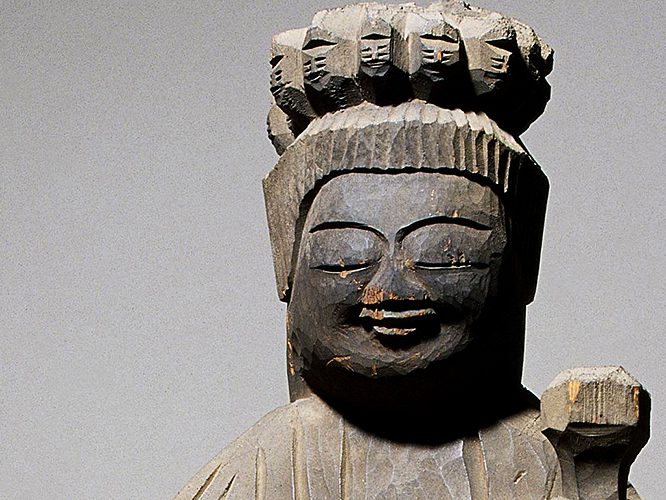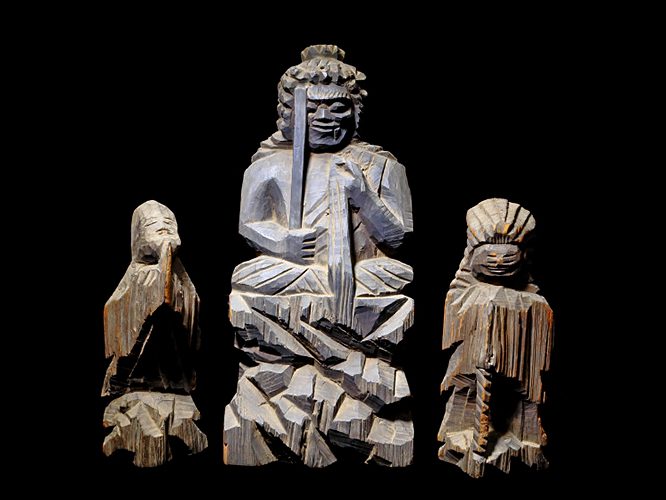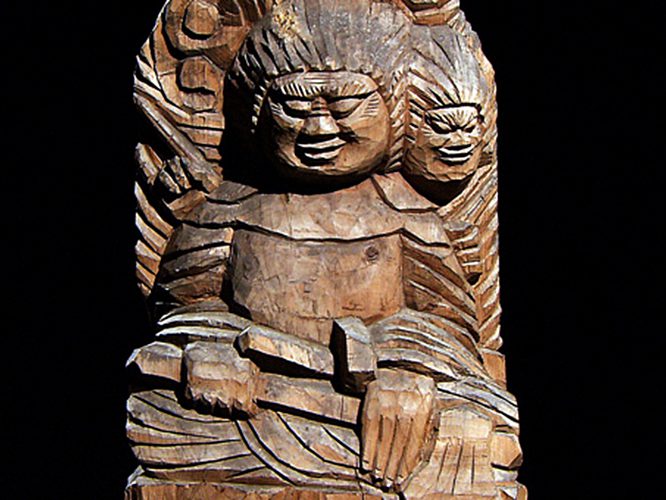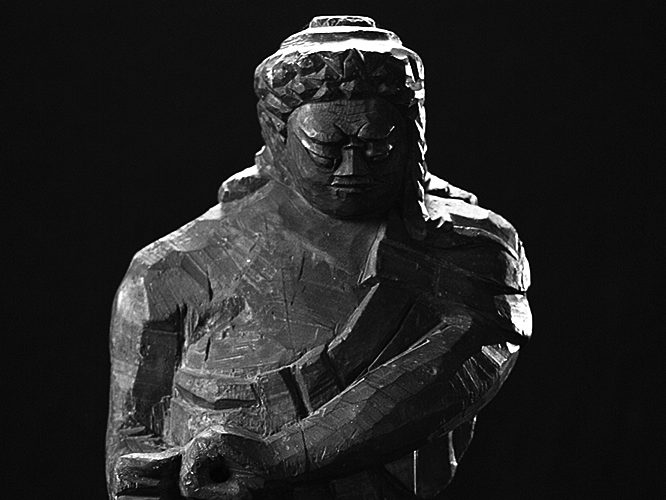Enku was a Buddhist monk and carver of Buddhist statues who lived in the later half of the 17th century. He did not belong to a particular temple or organization, but rather he traveled all over meeting many people in his pursuit of knowledge.
The Buddhist statues Enku carved during his travels can be seen today all over Japan. Currently, approximately 5,000 of his statues have been identified, but there are estimates that he carved 120,000 such statues during his lifetime. The statues he carved are known as “Enku-butsu” (Enku Buddhist statues), and while the roughly carved wood gives off a wild feeling, their faint smiles emanate a mysterious charm.
Enku left behind this poem.
“In the mountains where God lives, I’ll carve the Japanese cedar in the area and imbue His form”
Enku was able to feel the form of God in nature where it cannot be detected by the eye, and he reproduced this form in wood. The act of carving these Buddhist statues was a conversation with God. As Enku carved 120,000 Buddhist statues, just what was he feeling, and what types of conversations was he having with God?
円空は17世紀後半の僧侶であり仏師です。彼は、特定の寺院や組織には属さず、旅の中で土地の人々と触れ合いながら修業を重ねました。
円空が旅の中で掘り続けた仏像は日本各地に残されています。現在、円空が残した仏像は5000体ほど確認されていますが、彼が生涯に彫った仏像は12万体にも及ぶと推測されています。彼の彫った仏像は「円空仏」と呼ばれ、荒々しく木を削り出した野性味の中に、うっすらと微笑みをたたえ不思議な魅力を放っています。
円空はこんな和歌を残しています。
「ちはやぶる峯や御山の草木にも有あふ杉に御影移さん」
円空は、決して目には見えることのない自然の中に宿る神の姿を感じるがままに木の中に写し取りたかったのでしょう。 仏像を彫るということは、神との対話なのです。12万体もの仏像を彫り続けた円空は何を感じ、神とどのような対話していたのでしょうか。



